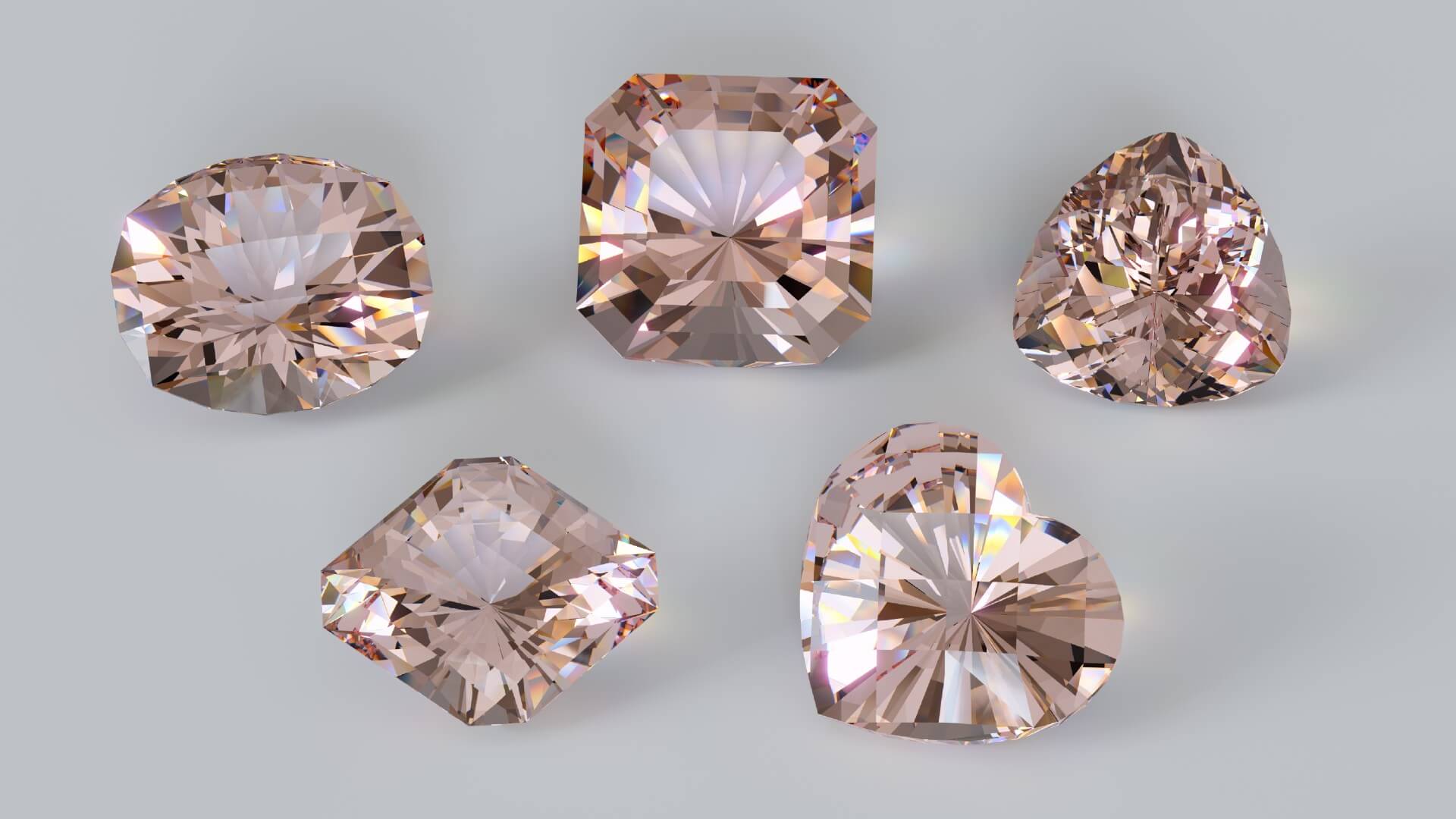In the world of fine jewelry, diamonds have long been the symbol of luxury, status, and everlasting love. But what if you’re looking for something different? Perhaps you want a more ethical option, a less expensive choice, or simply something that stands out from the crowd. This is where diamond substitutes come into play, offering a diverse range of beautiful, high-quality alternatives. Let’s explore the world of diamond substitutes, examining why you might choose them and which ones are the best options.
Why Consider Diamond Substitutes?
When we think of diamonds, words like “forever” and “timeless” come to mind. Yet, there are compelling reasons to consider diamond substitutes. Some people are drawn to them for ethical reasons, avoiding diamonds with questionable sourcing practices. Others seek alternatives due to budget constraints or a desire for something unique. But is there more to diamond substitutes than meets the eye? Let’s dig deeper.
Popular Diamond Substitutes: What Are They?
Several diamond substitutes have gained popularity over the years, each with its own unique qualities. Here’s a look at some of the most popular ones:
- Moissanite: Moissanite is a lab-created gem that closely resembles a diamond in appearance and brilliance. It’s almost as hard as a diamond, scoring 9.25 on the Mohs hardness scale, and is considerably less expensive. Moissanite’s fire and sparkle often exceed those of diamonds, making it a popular choice for engagement rings and other fine jewelry.
- Cubic Zirconia (CZ): Cubic zirconia is another lab-created gem designed to mimic the look of a diamond. While it’s less durable than moissanite and diamonds, it’s incredibly affordable and can be used in a wide variety of jewelry pieces. Cubic zirconia is ideal for those who want the look of a diamond without the price tag.
- White Sapphire: White sapphire is a natural gemstone that offers a clear, diamond-like appearance. It’s harder than cubic zirconia but softer than moissanite and diamonds. White sapphire is often chosen for its subtle, understated beauty and affordability.
- Lab-Created Diamonds: These diamonds are chemically identical to natural diamonds but are made in a laboratory. They are more ethical and environmentally friendly, as their production does not involve mining. Lab-created diamonds are a great option for those who want the real thing without the ethical concerns.
- Glass and Crystal: For costume jewelry and more casual pieces, glass and crystal can be a fun and budget-friendly alternative. While they lack the hardness and brilliance of diamonds, they can still add a touch of sparkle to any outfit.
Choosing the Right Diamond Substitute
With so many diamond substitutes available, how do you choose the right one for your needs? It all comes down to your priorities. If you’re seeking maximum sparkle and durability, moissanite might be your best bet. If you prefer a natural gemstone with a clear appearance lab grown diamonds, white sapphire could be the way to go. For those focused on ethics and sustainability, lab-created diamonds are a great option.
The Ethical and Environmental Impact
Ethics and environmental sustainability are becoming increasingly important considerations for many jewelry buyers. Diamond mining can have significant environmental impacts, including deforestation and soil erosion, and can be associated with unethical labor practices. Diamond substitutes, especially lab-created ones, offer a more sustainable and ethical choice. By choosing these alternatives, you can enjoy beautiful jewelry without contributing to environmental degradation or unethical labor practices.
Final Thoughts: Are Diamond Substitutes Right for You?
Choosing a diamond substitute is a personal decision, influenced by factors like budget, ethics, and aesthetics. If you value ethical sourcing and environmental sustainability, or if you’re looking for a cost-effective alternative with a unique flair, diamond substitutes are worth exploring.
Are diamond substitutes as good as the real thing? The answer depends on what you’re seeking in your jewelry. If you’re interested in finding a diamond substitute that suits your style and values, it’s worth considering moissanite, cubic zirconia, white sapphire, or lab-created diamonds. Each offers a unique combination of beauty, affordability, and ethical benefits. Ultimately, the best choice is the one that aligns with your personal values and preferences.

